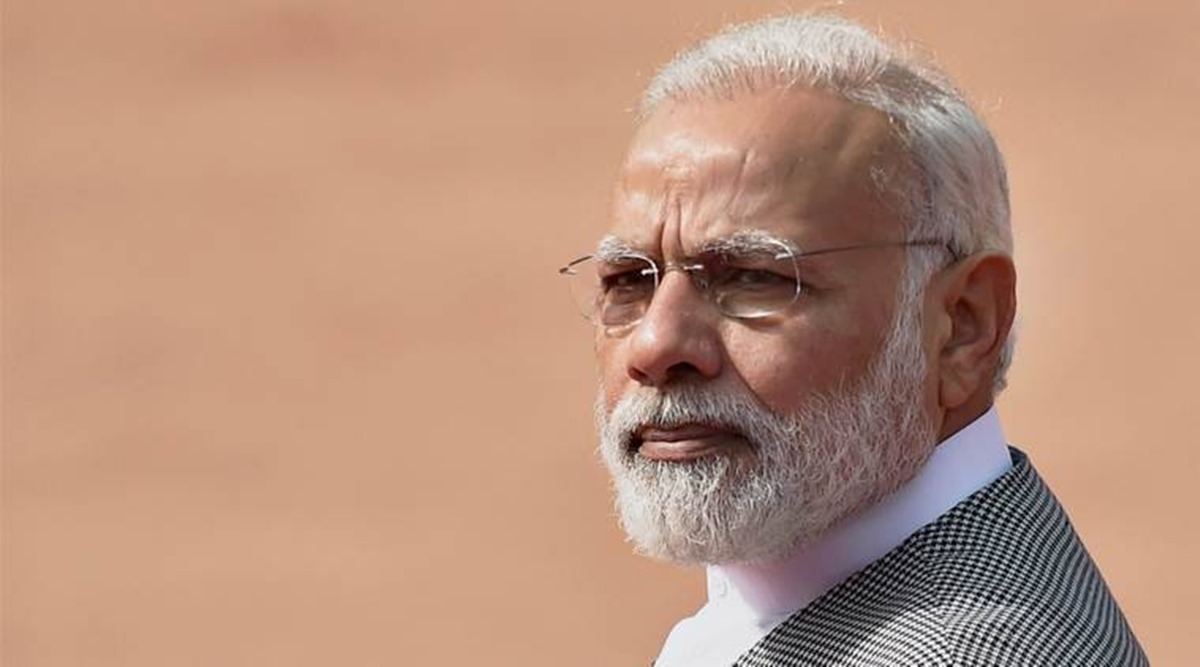 Prime Minister Narendra Modi. (File)
Prime Minister Narendra Modi. (File)“The first forty years of our life give the text, the next thirty furnish the commentary upon it,” writes Arthur Schopenhauer, the 19th-century German philosopher known for his essays on the role of human will in creating the world that we experience — in a sense, a kind of European derivative of our concept of the veil of Maya. The sum of this experience, at 70, “enables us rightly to understand the true meaning and connection of the text with its moral and its beauties” — it gives us the panoramic view from the peak.
This is an important perspective. Prime Minister Narendra Modi turns 70 on Thursday, at a time when the rate of change, bringing both risks and opportunities, seems to be accelerating on all fronts. His simple, straightforward style is well known. His memory — for facts large and small — is legendary. This is equally true of his acuity in filtering through the noise with his legendary capabilities for implementation while micromanaging to a fault, of which examples are many — the Narmada Project pumping water against gravity to bring relief to the water-starved parts of Kutch; and, equally, the construction of the iconic Statue of Unity.
Yet, it is also clear that this 70 is no time for him to rest and assume that the hard-won understanding of the present will enable wisdom for navigating the future — the pinnacle on the horizon. “Those who stare at the past have their backs to the future,” it is said. Our complex world has forks in the road, not just oscillations around a stable centre. Change is non-linear. Interconnectedness — and interdependency — is a fact of life. The next pinnacle will thus be different from previous peaks.
Prime Minister Modi has demonstrated his capacity for strategic, forward-looking vision on multiple occasions over the years. The Swachh Bharat Mission and Pradhan Mantri Ujjwala Yojana, for example, took a creative and strategic approach to improving our nation’s health and productivity by directly addressing issues such as ODF and sanitary pads. With his continuing belief in fiscal rectitude, the Pradhan Mantri Jan Dhan Yojana and the Insolvency and Bankruptcy Code were introduced to tackle the two challenging frontiers of the banking system — extending access to financial services and shoring up the foundations of bank solvency.
Looking forward, Prime Minister Modi is conscious of the need to navigate three new, unfolding, complex realities — rapid environmental change; shifting power dynamics between regions, actors, individuals and sectors; and the digital revolution from the Fourth Industrial Revolution to the opening up of new realms of intelligence. The earth that we once thought of as beyond our influence is now very clearly on the new trajectory of the Anthropocene. This has implications for temperature, rainfall, food and water security and biodiversity among others. The rapid pace at which we are now able to analyse and influence myriad aspects of society, environment, economy, infrastructure and even individual lives has offered a glimpse of the powers that we can use to rise to the occasion. Modi is committed to harnessing the digital revolution in a comprehensive sense and to build greater collective security. And how do we adjust to a new world where cybersecurity threats can arise from literally anywhere? These two trends are unfolding within, and influencing, a time of great change in the relationships that structure and reshape our collaboration. Modi’s belief in the PRAGATI (Pro-Active Governance and Timely Implementation) Platform is part of these endeavours.
At the risk of presenting a birthday request rather than a birthday felicitation, what are the ways in which he can truly use the perspective of his 70s in the decades toward 80 and beyond? He will recognise the need for three qualities in leadership in the coming years. One, the ability to remember the past, but see the present very clearly. We are entering a delicate era of shifting geopolitical sands. Our past alliances and interactions matter — friends are friends — but navigating new partnerships and initiatives that help us tackle emerging global challenges will require clear-eyed vision. This is true in internal matters as much as external affairs: We need new forms of collaborative partnership between the Centre, the states, and local governments.
A leader of his stature knows how to work within the constraints of reality — fiscal, chemical or biological—and, at the same time, inspire others to unite in making the best of the hard choices that these constraints dictate. We are on the edge of one of the greatest economic upheavals that the world has seen in recent memory, as COVID-19 and our efforts to halt the pandemic have accelerated existing trends to the point of discomfort and exposed hidden vulnerabilities. Prime Minister Modi cannot wish this reality away, and must build support for an innovative strategy that can mirror the hopes and wishes of his countrymen.
Finally, we need a visionary with the energy and freshness of perspective to forge ahead in a world that is offering both opportunities and risks. The Prime Minister will be the first to recognise that, in hindsight, joy, beauty, and common humanity are at the foundation of all that we have tried to do as a nation over the centuries. The horizon lies ahead.
Happy Birthday!
The writer is chairman, 15th Finance Commission
📣 The Indian Express is now on Telegram. Click here to join our channel (@indianexpress) and stay updated with the latest headlines
For all the latest Opinion News, download Indian Express App.